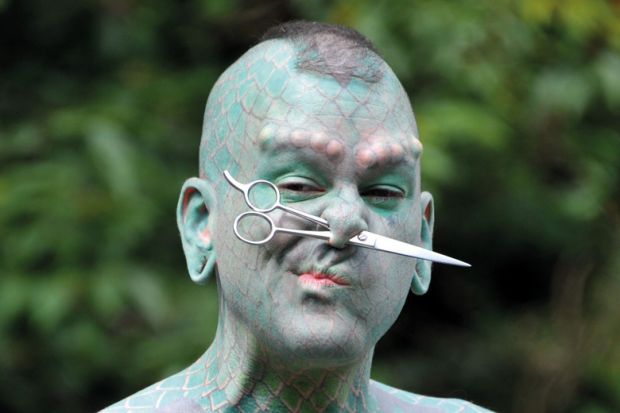Would you consider getting a tattoo on the basis that it could help you to write your PhD? Or tolerate sexism in order to secure a strong case study for your research?
Such dilemmas faced by doctoral researchers are explored in a recent study that examines the challenges of conducting qualitative research.
The three authors of the paper, “A dynamic process model for finding informants and gaining access in qualitative research”, published in Organizational Research Methods, detail the personal quandaries they experienced and the hurdles that they had to jump over while studying for a PhD.
Sara Elias, studying management and entrepreneurship at the University of Missouri, explains how she considered getting a tattoo so that she could conduct research on tattoo artists, even though she thought it would create a rift between her and her family. Nadia deGama, studying human resource management at the UK’s Anglia Ruskin University, says that she tolerated her professionalism being undermined when male participants in her study asked her for drinks and one told her that he liked the smell of her perfume. And Amanda Peticca-Harris, studying human resource management at the Grenoble École de Management, presents the “ethical” challenges of wanting to interview fellow participants in a yoga teacher training programme that she was undertaking.
The authors carried out the research after they met at the 2013 Academy of Management conference in Florida and found that they “all had stories about the lengths that we would go and the boundaries we would consider crossing in order to…get on with our dissertations”, Ms Peticca-Harris writes.
Ms deGama told Times Higher Education that there was a “discourse in academia” that requires researchers to be “resilient, so you tend to brush off the uncomfortable, awkward encounters that you face”.
“We tend to assume it’s our fault – we say it was my first time doing independent research on my own, I must be doing something wrong,” she said.
She added that this self-blame and pressure to tolerate difficult circumstances if it means progressing with research is a symptom of an increasingly “tougher job market” in academia and the “precarious situation” of young researchers.
Ms deGama suggested that university research workshops, which tend to cover the formal processes of carrying out qualitative studies, should also include “candid” experiences of these “gritty, raw moments in the field”.
Ms Elias added: “If we can expose these emotional encounters to other [researchers], hopefully they will be a little more prepared when they contact potential informants and try to gain access to them.”
POSTSCRIPT:
Print headline: Is a tattoo too far to go for a PhD?
Register to continue
Why register?
- Registration is free and only takes a moment
- Once registered, you can read 3 articles a month
- Sign up for our newsletter
Subscribe
Or subscribe for unlimited access to:
- Unlimited access to news, views, insights & reviews
- Digital editions
- Digital access to THE’s university and college rankings analysis
Already registered or a current subscriber? Login







